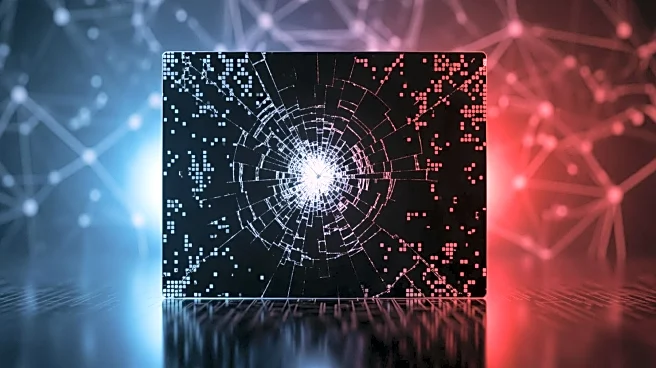What's Happening?
During the war between Israel and Iran in June 2025, social media platforms were inundated with fake images and videos depicting widespread destruction in Tel Aviv. This phenomenon, driven by AI technology, poses a significant threat to public perception
and the dissemination of accurate information. The ability for anyone with a smartphone to create realistic-looking videos and images has raised concerns about the potential for digital deception to alter reality. The rapid spread of both accurate and inaccurate information, known as an 'infodemic,' is exacerbated by AI-driven deepfakes, which can manipulate perceptions and create confusion during critical events.
Why It's Important?
The rise of AI-driven deepfakes and digital deception has profound implications for information integrity and public trust. As these technologies become more accessible, they can be used to manipulate public perception, potentially influencing political decisions and social dynamics. The ability to create convincing fake content can undermine trust in media and official communications, leading to misinformation and confusion. This is particularly concerning during conflicts or crises, where accurate information is crucial for decision-making and public safety. The challenge for policymakers and technology companies is to develop strategies to detect and mitigate the impact of deepfakes, ensuring that the public can rely on accurate information.
















